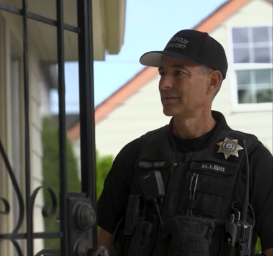Protecting animals from neglect and abuse has been at the heart of Oregon Humane Society’s mission for over 100 years.
 OHS Humane Law Enforcement team leaders, Christopher Allori (Chief of Humane Law Enforcement) and Veronica Broadley (HLE Support Services Manager) gave us the inside scoop on how their team protects and rescues animals across the state.
OHS Humane Law Enforcement team leaders, Christopher Allori (Chief of Humane Law Enforcement) and Veronica Broadley (HLE Support Services Manager) gave us the inside scoop on how their team protects and rescues animals across the state.
I know OHS has a Humane Law Enforcement department, but are HLE officers actually police officers? How can they work for OHS but also work for the state of Oregon?
Chief Christopher Allori: Oregon HB 4021 was passed into law on March 27, 2012. HB 4021 gives Oregon Humane Society the authority to employ officers commissioned by the Oregon State Police to conduct animal welfare investigations in Oregon. OHS Humane Special Agents receive their police authority through the Oregon State Police, but we are not associated with, nor work for, the Oregon State Police.
Basically, OHS Humane Special Agents are working for Oregon Humane Society, but receive their police authority through Oregon State Police, allowing them to investigate animal welfare offenses within Oregon. OHS Humane Special Agents do not have any police authority outside of Oregon.
What types of crimes does HLE investigate? Do they just investigate animal cases, or can they also give me a speeding ticket?
Chief Allori: OHS HLE investigates animal welfare laws within Oregon. OHS HLE only investigates state laws and we do not:
- Investigate federal laws or city and county ordinances such as dog off leash, dog license violations, etc.
- Enforce any other laws such as traffic or criminal laws.
- Investigate if there is any other offense we encounter not related to an animal welfare law, and the information is turned over to the appropriate authorities for investigation and enforcement action.
Additionally, OHS Humane Special Agents must follow all state and federal laws when exercising their police authority. OHS Humane Special Agents must maintain annual training as required through the Oregon Department of Public Safety and Standards Training Department to retain their police certification.
I know HLE’s main job is to protect animals in our community, but does HLE also offer resources to pet owners in need? How will HLE work with OHS’ new Veterinary Social Worker?
Chief Allori: OHS Humane Special Agents often encounter situations where a person they contact from a reported complaint just needs resources such as pet food, flea medications or referral to a veterinarian.
OHS Humane Special Agents often try to resolve an issue with resources, education and communication rather than enforcement action. If a situation cannot be resolved in this way, then enforcement action is an option that may need to be considered to gain compliance, especially if the reported pet(s) need care if steps are not taken to correct the situation.
OHS Humane Special Agents have already utilized our Veterinary Social Worker on several incidents. OHS Humane Special Agents frequently encounter individuals with mental health issues and the use of our social worker will be utilized in future situations when it is the best option.
I know OHS HLE manages an Animal Cruelty Tip Line. What happens when I call in a tip about a neglected or abused animal?
Veronica Broadley: In addition to the Humane Special Agents, the HLE team includes three non-sworn staff members. These staff members perform a variety of functions including answering OHS’ Animal Cruelty Tip Line.
During business hours, these staff members answer calls live whenever possible. Most calls to the tip line are made by concerned citizens who are not sure if they should report their concern and, if so, how to report it. HLE staff members listen to the concern and ask the caller questions to give the best advice and to gather sufficient information if the report will be assigned to Humane Special agents for investigation. When staff cannot answer calls live, tip line callers will be directed to leave a detailed voicemail message about their concern.
On average, OHS receives approximately 250 reports every month including calls to the tip line, emails and reports submitted via our website.
If you suspect animal cruelty or neglect, call our Animal Cruelty Tip Line at (503) 802-6707 or fill out our online complaint form here.
I gave to the New Road Ahead Project because I am excited about the new Animal Crimes Forensic Center. How will the completion of this center expand your work? Why is it needed?
Veronica Broadley: The animal victims in animal cruelty cases cannot tell us what happened to them. Investigators must gather evidence to piece together what occurred.
The purpose-built environment, specialized equipment and professional expertise of the Animal Crimes Forensic Center will provide us the tools needed to respond to the increasingly high standards we must meet to successfully hold offenders accountable for their actions.
The Animal Crimes Forensic Center will allow us to offer our services to other agencies in the region, ensuring more animal victims receive the very best opportunity for justice.






